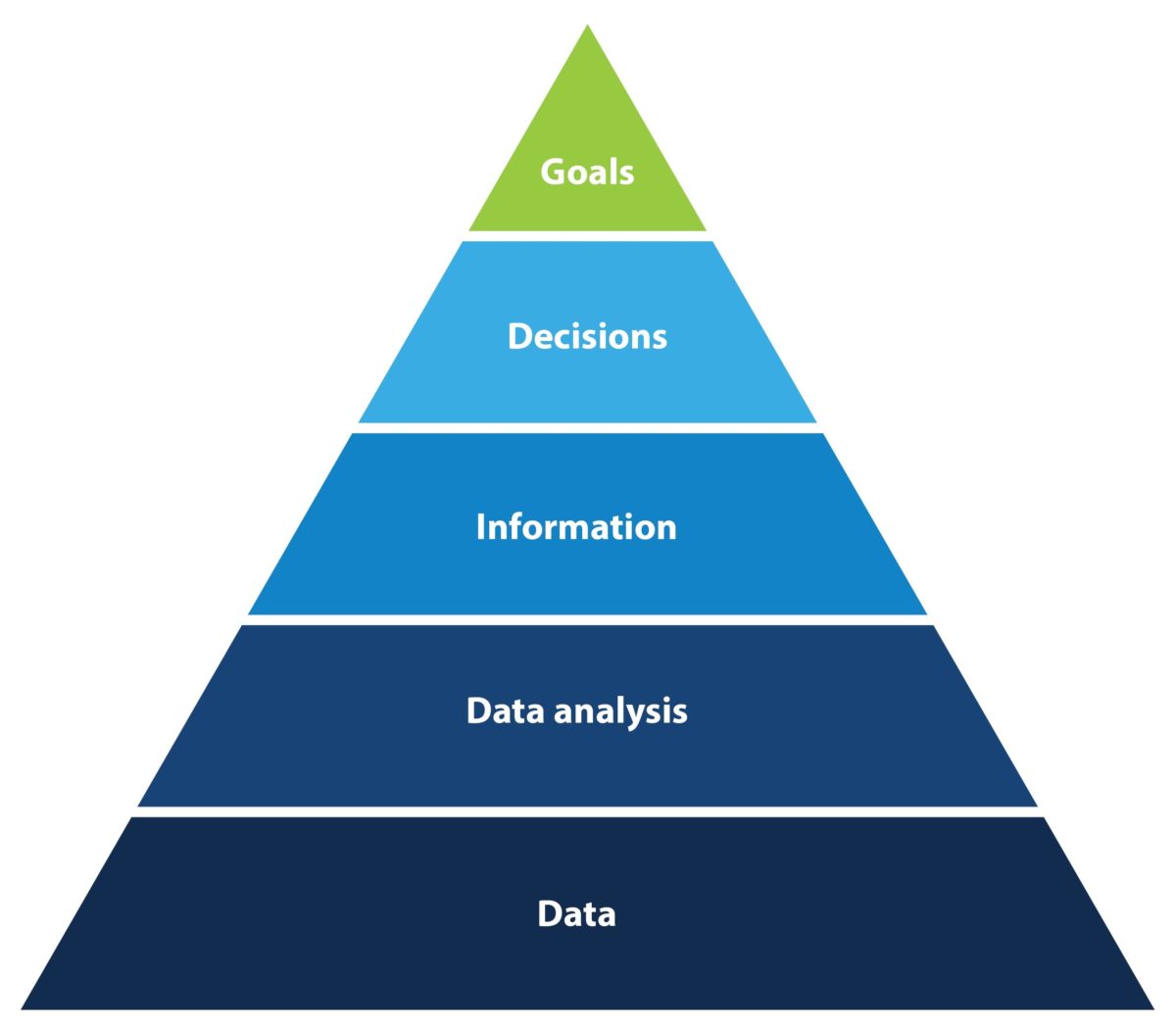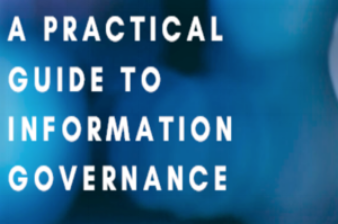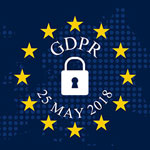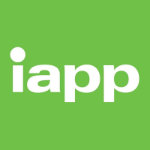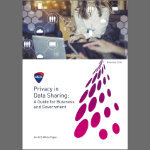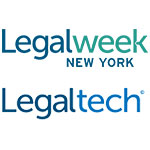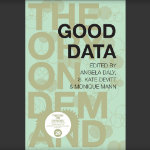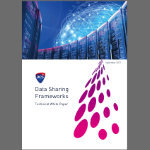Publications & Resources
THIS MONTH’S FEATURED ARTICLES
Information Governance: optimising the lifeblood of organisations
In this article, Susan Bennett discusses why identifying and co-ordinating the areas, people and technologies resonsible for keeping the lifeblood of your organisation in good health is key to effective IG. The Elements of Information Governance diagram shows different areas and activities within an organisation responsible for the security, control, optimisation and risk management of data and information – you can find it on our home page. The article provides a full explanation of the Elements of Information Governance diagram.
The Information Governance 2020 Roundtable took place on Monday, 18 November at the Governance Institute of Australia. The event covered highlights from the recent InfoGovANZ Survey Report, privacy developments and trends globally, the new ISO working group developing an Information Governance standard, and the new records management cloud-based system utilising machine learning at the Australian Human Rights Commission. There was a great turn out of members, sponsors and interested parties for a fantastic session covering a broad range of IG topics.
See More Publications Below
Information Governance Articles
The Governance of Things – The Challenges of Information Governance in a Cyber-Physical World
When people think about information and information governance, they may think about information in a purely digital or online sense. And, they tend to think that governance centres on addressing privacy and broader legal compliance requirements and, perhaps, consider information from a business risk perspective.
Steps to Increasing Enterprise Information Governance Mindshare
Most organizations are at or near the end of transforming and/or updating transactional processes and systems to become more efficient and reduce cost. However, the people, processes and information that drive time to market and sales have been under-served.
Why Information Governance Needs Top-Down Leadership
Effective leadership of information governance (IG) is key to ensuring that appropriate strategies, priorities, policies and processes are successfully embedded in an organisation, both to maximise the opportunities and minimise the risks arising from the information it holds.
Enterprise Information Governance
Organisations that are successfully addressing the business challenge of being overwhelmed by the exponential information growth are placing value at the core of their information governance program.
Enterprises are now asking “How do we better manage and provide governance across this increasing volume of information to harness the business value from it?”
The Governance of Things – Unpacking the Benefits of Information Governance
Organisations need to consider information as an asset and measure both the value and costs of the data they hold. This means measuring the financial benefits derived from the value of data held as well the costs and subsequent savings from risk management investments.
The Governance of Things – Driving the Value of Information Governance
Effective governance of information requires a strategic approach. This involves quantifying each of the business drivers by breaking them down into categories: risk, hard and soft costs, and information value. Once this is completed, a return on investment can be calculated to drive and implement effective information governance solutions that deliver results to the bottom line.
Leverage the ISO 55000 Standard for Asset Management
The case for leveraging ISO 55000 for heavy asset industries, infrastructure and the public sector is indisputable. Instigating comprehensive and effective Information Governance improves the ability of organisations to comply with laws and manage asset-related risk while providing real business value.
As Information Governance and Data Governance becomes increasingly important for organisations seeking to control and secure information, it is important to understand what each one does and achieves.
IGANZ Information Governance Industry Survey Results
We would like to thank all those who responded to the survey and hope the final results prove interesting and useful. A few key findings:
-
49% of survey respondents felt their leadership had failed to address Information Governance.
-
The main driving factors of Information Governance projects were external regulatory pressures (80%) and good business practices (59%).
One of the challenges enterprises currently face is the lack of management of information across their business processes, from end to end. Understanding how your organisation leverages information holistically, from end to end, and the management of this information, can be realised with an Information Governance Program.
What is information governance and how does it differ from data governance?
The terms ‘information’ and ‘data’ are often used interchangeably but there are differences in meaning. Data are simply facts or figures — bits of information, but not information itself. Information provides context for data. This article provides an overview of why both these disciplines are important for organisations seeking to control and secure information and an understanding of what each discipline does and achieves for an organisation.
Corporate Governance in the digital economy: the critical importance of Information Governance
Good corporate governance in the data driven and digital economy poses significant challenges for Boards and seniors executives. In this article, Professor Michael Adams and Susan Bennett highlight the importance of information governance to ensure there is a unified strategy and framework to govern information effectively.
Good information governance enables organisations to maximise the value of information as a business asset while minimising risks and costs, particularly those associated with data breach.
Information Governance Leadership – Controlling Data and Information to Achieve Strategic Objectives
Effective Information Governance leadership enables an organisation to deliver continual strategic and proactive governance as digital disruption impacts the organisation and digital transformation continues.
A Practical Guide to Information Governance
This Guide addresses the lack of a common set of languages to support the growth of IG as a discipline and provides an easy to read explanation of Information Governance. A broad range of IG practitioners from both public and private sector, participated in a number of forums to leverage their collective experience to develop this Guide
What does Blockchain have to do with Information Governance?
You have probably heard of Blockchain from the perspective of the Cryptocurrency Bitcoin but this relatively new technology platform, provides us with an opportunity to reassess how we leverage the technology component of the Information Governance equation particularly in the areas of Privacy, Records Management, Information Management, and Cybersecurity.
Impact of Technology and Information Governance: impact of AI and Unconscious Bias
This article by Prof. Michael Adams is focused on the technology aspects of company directors concerns in the 2018/2019 financial year.
Michael believes that technology, should probably be the top of directors and governance professionals minds. This is because it will form part of most companies corporate strategy.
Governance Documents – the essential building blocks of Information Governance
This article provides us with a very informative and pragmatic overview on an approach to implementing a document framework across an organisation to ensure consistent information about how the business is operated and what standards are expected to be met as part of the ‘common language’ required for effective corporate governance and why it is essential to efficient business operations.
Governance Documents – creating a ‘Common Language’ for Corporate Governance
This is the second part of InfoGovANZ Advisory Board Member, Carol Feuerriegel’s excellent series on governance documents. This article explains how to establish and communicate a simple governance document hierarchy in your organisation to support better corporate governance by creating a shared understanding of the key tools used to embed corporate culture, establish strategic priorities, maintain business operations and to control risks.
Without Information Management – How do we apply Information Governance Policy
In the Digital Age enterprises understand the need to transform their business model to automate business processes leveraging the data and information that is available across the enterprise. This represents a tremendous business opportunity but is also a significant challenge.
At the heart of this transformation, and increasingly a by-product of it, is digital information. In a global digital economy, making use of information and data as part of the business model is critical for progress and success.
Information & Data Trends & Challenges – IAM 2019
InfoGovANZ joined with National Archives and other professional organisations including RIMPA, IM, DAMA, Australian Society of Archivists, Australian Library and Information Association as part of Information Awareness Month. The event provided an opportunity for industry leaders to share perspectives on contemporary information and data management trends and challenges. The Many Voices, One Message booklet summarising the key themes and topics discussed at the workshop has just been published this week.
IG as a key enabler of Successful System Design
In general the focus of IG is controlling data and information within an organisation, however, it also applies to the very significant amounts of complex and changing information used to inform design decision-making across our society. In this article, Shaun Wilson InfoGovANZ Advisory Board member, considers the role of IG in better informing decision-making for major systems interacting with each other to improve how our complex society works and to avoid catastrophes, such as cascading failures of energy networks leading to widespread transport and health system failures.
Click here to read the full report
Information Governance: optimising the lifeblood of organisations
In this article, Susan Bennett discusses why identifying and co-ordinating the areas, people and technologies resonsible for keeping the lifeblood of your organisation in good health is key to effective IG. The Elements of Information Governance diagram shows different areas and activities within an organisation responsible for the security, control, optimisation and risk management of data and information – you can find it on our home page. The article provides a full explanation of the Elements of Information Governance diagram –
The Information Governance 2020 Roundtable took place on Monday, 18 November at the Governance Institute of Australia. The event covered highlights from the recent InfoGovANZ Survey Report, privacy developments and trends globally, the new ISO working group developing an Information Governance standard, and the new records management cloud-based system utilising machine learning at the Australian Human Rights Commission. There was a great turn out of members, sponsors and interested parties for a fantastic session covering a broad range of IG topics.
Cybersecurity Articles
Cyber Insurance: how it works and the benefits of information governance
In this article, Meena explains what organisations can do to reduce cyber risks and why an effective data and information governance program is instrumental for businesses looking to invest in cyber insurance.
Meena is a cyber insurance and data breach broker, specialising in cyber risk, data privacy, intellectual property and cyber crime. She helps organisations identify potential cyber risks and believes that cyber insurance should be a key component of a company’s enterprise risk management strategy.
I
Information Security & Information Governance – how they work together
In this article, Richard Kilpatrick outlines the difference between Information Security and Information Governance and explains why IG frameworks are essential for the successful orchestration of specialised security systems.
Richard is a highly experienced consultant in information technology, focusing on realistic data governance, security and privacy. He has led programs of work to discover and classify data across multiple business units, within banks, telcos, health and media.
APRA’s New Cyber Security Regulation
At the Insurance Council of Australia’s Annual Forum in March 2018, APRA Executive Board Member Geoff Summerhayes said: ‘APRA views cyber risk as an increasingly serious prudential threat to Australian financial institutions.’
Broken Trust – The Information Security Dangers of Insider Threats
The increasing awareness of external cyber-security threats has executives focused on how their organisation can be defended against the “enemy at the gates”. But are organisations just as much at risk from an “enemy within”? In this article Dr Peter Chapman, Director in the Ferrier Hodgson Forensic Technology and eDiscovery team and InfoGovANZ advisory board member, provides an opinion and case study on insider threat.
Privacy Articles
Data Sharing and Release Bill (Response to Issues Paper)
We recognise that access to data drives efficiencies and advancements, and applied to the right purposes, with the right controls, can drive public benefits and positive societal outcomes. In some circumstances, it may be necessary and beneficial for identifiable information to be shared across government portfolios (for example, to minimise fraud)
Australia’s new Notifiable Data Breaches Scheme: Is your Data Breach Response Plan up to date?
Australia’s Notifiable Data Breaches (NDB) scheme comes into effect from 22 February 2018. This article explains what a Notifiable Data Breach is and when to notify the Australian Information Commissioner and individuals whose personal information has been subject to a data breach likely to result in serious harm.
GDPR: Change to European Privacy Laws and its impact on Australian Businesses
The GDPR imposes significant change to privacy laws in Europe and will apply and be enforced from 25 May 2018.
Organisations that fail to comply with the GDPR face heavy fines up to €20 million or up to 4% of global annual turnover, whichever is higher.
Privacy and Data Breaches: How Information Governance Minimises the Risk
Preventing data privacy breaches is becoming increasingly important, with the increasing costs of dealing with cyber attacks, IT security breaches, and the subsequent legal actions and regulatory investigations.
Mandatory Data Breach Notification is in – Here’s all you need to know
From February 2018, your organisation will have to fess up if it experiences a serious data breach. Whilst that may sound like a long time away, the requirement to notify is only the tip of the iceberg. This article is a reminder to all organisations covered by the Privacy Act to have adequate measures in place to protect information security and to have a privacy governance framework in place.
Big Data, Privacy and Information Governance: implementing an ethical based assessment
As the law lags behind in rapid technology innovations, particularly in big data, artificial intelligence (AI), machine-learning and the Internet of Things (IoT), there is increasing awareness and discussion about the need for an ethical based approach to data analytics. In this article Susan Bennett, co-founder of InfoGovANZ considers why an ethical based approach can build trust and transparency with consumers and citizens, and why it should be part of good information governance, as a means of maximising the value of information derived from data analytics while minimising risks.
Arjun Ramachandran and InfoGovANZ Advisory Board Member Melanie Marks, facilitated by Gilbert +Tobin recently hosted our Privacy & Trust Roundtable. This very interesting discussion highlighted that the concept of trust may differ in the context of different and organisations, and how organisations can practically go about building it. You can read their thought-provoking article on what it takes for an organisation to build a path towards trust with customers here.
Highlights of the IAPP Global Privacy Summit 2018
This is a round-up of the global IAPP Summit that takes place in Washington DC every year near Easter. It is a massive event, with over 3500 people moving over 4 floors plus an exhibition hall. The sessions covered topics including blockchain, data scraping, GDPR compliance, data breach notification and response, Privacy Shield, Artificial Intelligence (AI), Smart Cities, Big Data, online reputation.
Identity of a nation: protecting the digital evidence of who we are
InfoGovANZ member Anne Lyons is the author of the latest report from ASPI’s International Cyber Policy Centre, ‘Identity of a nation: protecting the digital evidence of who we are’. Anne highlights the importance of protecting our national identity assets – the digital evidence of who we are – in a global environment of cyber-attacks, information manipulation and grey-zone cyber conflict aimed at disrupting nations and in particular western democracies.
Australia’s Mandatory Data Breach Reporting Scheme: a year on what have we learned?
Twelve months on, consumers are arguably more troubled about the lack of safeguards for privacy, while businesses face the prospect of further regulation and oversight. Without a fundamental shift in how privacy is addressed, the cycle of heightened concern followed by further regulation looks set to continue. In this article, Melanie Marks Principal of elevenM and InfoGovANZ advisory board member, examines how data breaches are happening and the benefits of a more proactive and embedded approach of privacy by design.
OAIC Notifiable Data Breach Report
The NDB scheme applies from 22 February 2018 to all agencies and organisations with existing personal information security obligations under the Privacy Act. It was established by the passage of the Privacy Amendment (Notifiable Data Breaches) Act 2017.
On 13 May the OAIC launched its Notifiable Data Breaches Scheme 12-month Insights Report. If you’re interested to see how the first full reporting year for the notifiable data breach scheme has transpired, click a link to the OAIC report here.
Privacy: Let’s take this seriously
In the light of the OAIC Data Breach report Arjun Ramachandran take a look at what is really happening both locally and also on a global basis. He assesses the reality of why companies are addressing privacy and he claims it is not because they are interested in keeping your information private but rather that is what they think you want to hear.
Parenting, privacy and the future
After attending Monash Law Faculty’s Symposium Young People’s Privacy in an Online World, InfoGovANZ Advisory Board Member, Melanie Marks, wrote a blog reflecting on the need for better public engagement on the future of privacy.
The article covering Melanie’s summary of the presentations and her own personal insights about the potential policy issues and the future of surveillance and profiling.
Click here to read the article
Keynotes of Privacy Commissioners at IAPP ANZ Summit – Sydney 2019
The challenge of regulating nationally in a global data sharing environment was a common theme in the keynote speeches delivered by Australia’s and New Zealand’s Privacy Commissioners at the recent IAPP ANZ Summit held in Sydney. Australian Commissioner, Angelene Falk, spoke of the trends and changes impacting the local landscape, noting that there is now a need to ensure the Privacy Act remains ‘fit for purpose’ into the next decade. New Zealand’s Commissioner, John Edwards, in a rousing keynote, addressed the power asymmetry of big tech.
Privacy in Data Sharing – a Guide for Business and Government
This paper describes a framework for privacy-preserving data sharing, addressing technical challenges as well as some data sharing issues more broadly.
The paper builds on the 2017 ACS paper, Data Sharing Frameworks 1, expanding the concept of a Personal Information Factor and introducing a Data Safety Factor with recommendations for threshold settings.
Records Management Articles
The Governance of Things – Records Management – The Future of the Profession
Although the records management (RM) profession is facing challenges with an increasing focus on information governance, the reality if that its role and function has been in great need for more than 30 years and remains a necessity today.
Recordkeeping in Information Governance
In this article Barbara provides an insightful overview of recordkeeping informatics which is an emerging framework for understanding organisational recordkeeping. This framework is based on the need for agility, interdisciplinary focus and the need to adapt practices and requirements in ever-changing technological environments.
The approach is focused on two solid foundation blocks – continuum thinking and metadata, recordkeeping informatics uses three facets of analysis – organisational information culture, business analysis and access.
RIMPA Live 2019 was held at the Marvel Stadium in Melbourne, marking 50 years of RIMPA and its 35th Annual Conference. It was a conference filled with a keynotes, plenary sessions and roundtables over the three days of the conference. There were several keynotes including CTO and entrepreneur Gus Balbontin, Richard Foy, New Zealand’s Chief Archivist, information thought-leader Randy Kuhn Esq from the US and Kevin Sheedy AO, AFL Legend.
eDiscovery Articles
The Governance of Things – Increasing Acceptance of Technology Assisted Review
In December 2016, the Supreme Court of Victoria endorsed the use of Technology Assisted Review (TAR) in the eDiscovery process in the case of McConnell Dowell Constructors v Santam. This was the first time TAR had been approved for use
in litigation in an Australian Court.
The use of technologies like TAR assists parties in litigation to meet the requirements ‘of a just, efficient and cost-effective resolution of the dispute’ by reducing the time and cost involved in large scale document production during the discovery process.
The Governance of Things – eDiscovery in Australia and New Zealand
eDiscovery is the production of relevant documents that parties to litigation or an inquiry are required to produce to either a Court, Royal Commission, Commission of Inquiry or to a government regulator. The eDiscovery industry is a global industry reflecting the enormous growth in information and the specialised technology which has developed to meet that challenge. While eDiscovery is a specialist area of legal technology the challenge of document production extends well beyond in-house legal departments and requires the assistance of IT departments and records management.
AI and the Law – the future is here
Artificial intelligence (AI) is already making significant inroads to the practice of law and producing efficiencies and cost savings. This article looks at how AI is being used in different parts of legal practice and the transformation of legal practice that is already underway in the delivery of legal services from litigation through to contract management and Chatbots.
How eDiscovery is managing the challenge of what constitutes Personal Information
In this article, InfoGovANZ Advisory Board Member, Matthew Golab, looks at the definitions of Personal Information from the perspective of document production in litigation, regulatory investigations and Royal Commissions. This article highlights that while some types of personal information can be readily identified with the use of technology there are challenges in identifying all personal information.
LegalTech and LegalWeek NYC 2019
Andrew King and Susan Bennett recently returned from LegalTech and LegalWeek in New York. Below is a link to their report covering the highlights from the myriad of events that take place in LegalWeek attended by some 8,000 people. The plenary keynote was a fireside conversation with former US Attorney-Generals Alberto Gonzales (2005-2007) and Loretta Lynch (2015-2017), as they explored Leadership in the Profession of Law and How It is Changing.
In this InfoGovANZ and ILTA event, the implications and dangers of the widespread use of social media and apps were highlighted in their evidential value in investigations and litigation. Reference to particular cases and technology tools were demonstrated by Brett Webber, Principal, Consilad and Matthew Golab, Director of Legal Informatics at Gilbert + Tobin. Susan Bennett discussed the duties of technology competence and confidentiality, which extends to cybersecurity to protect client information and the implications of the High Court Glencore decision. You can read a full report and photos of the event here
Data & Infonomics Articles
Moving away from the strong body of critique of pervasive ‘bad data’ practices by both governments and private actors in the globalized digital economy, this book aims to paint an alternative, more optimistic but still pragmatic picture of the datafied future. The authors examine and propose ‘good data’ practices, values and principles from an interdisciplinary, international perspective. From ideas of data sovereignty and justice, to manifestos for change and calls for activism, this collection opens a multifaceted conversation on the kinds of futures we want to see, and presents concrete steps on how we can start realizing good data in practice. You can access online for a free download:
http://networkcultures.org/blog/publication/tod-29-good-data/
Putting People and their Data at the Centre – investing in the social wellbeing of Aotearoa
In this article, Carol Feuerriegel, IGP, explains New Zealand’s progressive approach for shaping social, economic, and environmental investments through the lens of ‘wellbeing’ is world-leading. The approach necessarily involves processing significant amounts of data from wide-ranging sources. It will also mean the development of an innovative approach to how to measure wellbeing and to leverage advanced analytics and evidence to identify who in the New Zealand population would benefit from what type of social policy interventions.
Data Sharing Frameworks – Technical White Paper
The Data Sharing Frameworks Technical White Paper addresses the overarching challenge of developing privacy preserving frameworks, which support automated data sharing, as a way to facilitate smart services creation and deployment in an Australian context.
Privacy Preserving Data Sharing Frameworks
On 9 August 2019, the Australian Computer Society released its Privacy Preserving Data Sharing Frameworks report on a three-week activity which explored aspects of the 2017 ACS Technical Whitepapers on Privacy on Privacy preserving Data Sharing to develop a Personal Information Factor (PIF) and developing Data Safety factors based on the description in the technical whitepapers. The PIF and frameworks were evaluated on open datasets and synthetic datasets. To see the conclusions read the report here
Data as a Strategic National Resource: The Importance of Governance and Data Protection
This article by Susan Bennett highlights that robust governance is key to realising the value of data as a strategic national resource. Good governance means a unified strategic approach that meets the organisation’s strategic objectives and, in the case of a government agency, the whole-of-government objectives. The policies to manage information assets including data, privacy, cybersecurity and information technology all need to align and coordinate under and information governance framework in accordance with the Digital 2020 Policy. The article was published in the August edition of Governance Directions.
Report on the Digital Identity Conference 2019 NZ
Carol Feurriegel recounts some of the highlights from the recent Identity Conference 2019, which was the fourth in a series of conferences that began in 2008. The conference purpose or ‘big idea is to look at the identity-related problems of today and the solutions of tomorrow’.
Key note speakers included Privacy Commissioner John Edwards, NY Times jourmalist Kashmir Hill, Professor Tahu Kukatai and Chief Archivist Richard Foy
Infonomics – valuing information assets
Infonomics is the concept and practice of treating information as a corporate asset. In this article, James Price Managing Director of Experience Matters explains the rationale for information being considered as a separate asset class with measurable economic value that qualify it to be accounted for and administered as any other reconised type of asset. James shares his insights and experience in this developing area of Infonomics. There are significant strategic, operational and financial reasons for doing so.
Privacy-Preserving Data Sharing Frameworks
This is the third in a series of papers and develops a practical solution providing a framework for privacy preserving data sharing, addressing technical challenges as well as data sharing issues more broadly. It builds on the 2018 ACS Report, Privacy in Data Sharing: A Guide for Business and Government, expanding the concept of a Personal Information Factor and introducing a Utility Factor with worked examples.
AI and Ethics Articles
Big Data, Privacy and Information Governance: implementing an ethical based assessment
As the law lags behind in rapid technology innovations, particularly in big data, artificial intelligence (AI), machine-learning and the Internet of Things (IoT), there is increasing awareness and discussion about the need for an ethical based approach to data analytics. In this article Susan Bennett, co-founder of InfoGovANZ considers why an ethical based approach can build trust and transparency with consumers and citizens, and why it should be part of good information governance, as a means of maximising the value of information derived from data analytics while minimising risks.
AI: Australia’s Ethics Framework
A discussion paper developed by CSIRO’s Data 61 has been released to inform the Government’s approach to AI ethics in Australia. Your views and submissions can be made on the consultation hub here to help ensure AI is developed and applied responsibly with accountability.
The Ethics Guidelines for Trustworthy Artificial Intelligence (AI)
Published in April 2019 and prepared by the High-Level Expert Group on Artificial Intelligence, which is an independent expert group set up by the European Commission.
Principles on Artificial Intelligence
In May 2019, the OECD adopted its Principles on Artificial Intelligence, the first international standards agreed by governments for the responsible stewardship of trustworthy AI, which include recommendations for public policy and Principles to be applied to AI developments around the world. The Principles ‘promote AI that is innovative and trustworthy and that respects human rights and democratic values.
The IEEE Global Initiative on Ethics of Autonomous and Intelligent Systems (The IEEE Global Initiative) has launched Ethically Aligned Design: A Vision for Prioritizing Human Well-being with Autonomous and Intelligent Systems, which is a crowd-sourced global treatise regarding the Ethics of Autonomous and Intelligent Systems.
Policy and Investment Recommendations for Trustworthy AI
In June 2019, the second deliverable of the AI HLEG was published, the Policy and Investment Recommendations for Trustworthy Artificial Intelligence.
Principles and Business Processes for Responsible AI
The promise of data analytics brings with it considerable risks. Canberra-based consultant and researcher Roger Clarke recently published a set of Guidelines, whose purpose is to intercept ill-advised uses of data and analytical tools, prevent harm to important values, and assist organisations to extract the achievable benefits from data, rather than dreaming dangerous dreams.
50 Principles for Responsible AI
Roger has followed up the Guidelines with ‘Principles and Business Processes for Responsible AI’ with a view to protecting the organisation’s own interests and also those of its stakeholders and society as a whole. He presents a set of
50 Principles for Responsible AI, arising from a consolidation of proposals put forward by a diverse collection of 30 organisations. To apply those Principles, he recommends adapted forms of the established techniques of risk assessment and risk management.
NIST plan for AI Standards Development
NIST has released a plan for prioritising federal agency engagement in the development of standards for AI. The plan recommends the federal government bolster AI standards-related knowledge, leadership and coordination among agencies that develop or use AI; promote focused research on the trustworthiness of AI systems; support and expand public-private partnerships; and engage with international parties.
Closer to the Machine: Technical, social and legal aspects of AI
OVIC has collaborated with experts in AI including Professor Toby Walsh (UNSW and CSIRO’s Data61), Professor Richard Nock (Australian National University and CSIRO’s Data61), Dr Jake Goldenfein (Cornell Tech, Cornell University) and others to produce an e-book on AI.
You can download the e-book Closer to the Machine from OVIC here
Supporter Contributions
Ameritas Leverages Technology for Improved Information Governance
This latest case study from the Information Governance Initiative demonstrates how Ameritas, an insurer, began with a pilot project to tackle a clearly identified business problem which they addressed using data analysis, indexing, searching, tracking and reporting tools from Active Navigation.
Roadmap to Reducing Your Biggest Information Risk
In this white paper, sponsored by IGANZ supporter Active Navigation, Russel Stalters, CEO of Clear Path Solutions, outlines a roadmap for reducing your organisation’s biggest information risk.
Information Governance Case Study – Les Schwab
Looking at one organization’s experience with IG, can provide valuable lessons and practical insights that will help all IG professionals mature their IG programs. This case study details a common but complex IG problem: managing the relationships among key IG players.
Making IG Real: Six Stories from the Front Lines of Information Governance Success
Over a typical business cycle, a large organisation produces staggering volumes of data. This will include essential records, valuable business intelligence, and knowledge uniquely relevant to the business. But frequently 50% or more of the content is utterly useless – it is dead weight, consuming storage capacity and obscuring the genuinely valuable content, burying the essential digital needles in terabytes of useless haystack.
Information Governance at Work: Pandora Media
With the help of the file analysis and governance experts, the Pandora GRC team discovered that at least 60% of its unstructured data had no value and there was no business or legal reason to continue to spend precious resources on protecting and storing it. So they took control, realising significant security,
privacy, cost, and productivity benefits along the way.
Not if, But When You Get Hacked: Measuring and Proactively Managing Information Risk
The likelihood of organisations having some type of data breach has been increased with the rise in cyber threats. An effective Information Governance Program is critical and foundational to managing the information risk contribution to overall Enterprise Risk. Organisations need to measure and proactively manage their information risks. Various products and approaches can be used to achieve the effective risk management.
The U.S. Marine Corps had accumulated a massive amount of NIPR (Non-classified Internet Protocol Router Network) and SIPR (Secret Internet Protocol Router Network) data after ten years of operating in Afghanistan. The data was unstructured and potentially contained vital information covering the Marine Corps’ presence and legacy in the region. The data consisted of emails, record message traffic, Microsoft Office files, PDF documents, images, personally identifiable information (PII) and collections of hour-by-hour, day-by-day records of events, incidents, actions and outcomes.
IGANZ Survey Report 2019
Information Governance ANZ is delighted to present the results of our industry survey, which was conducted over a 12 month period from July 2018 to July 2019.
The survey was distributed to our members, promoted in InfoGovANZ communications and on the website.
This report details the responses to this industry survey with a focus on identified market trends.
IGANZ Survey Report 2017
Information Governance ANZ is delighted to present the results of our industry survey, which was conducted over a 12 month period from July 2016 to July 2017.
Governance of Things
Each month we send to our members The Governance of Things newsletter with feature articles, latest news and developments, and upcoming events. You can explore past editions of the Governance of Things below.
















